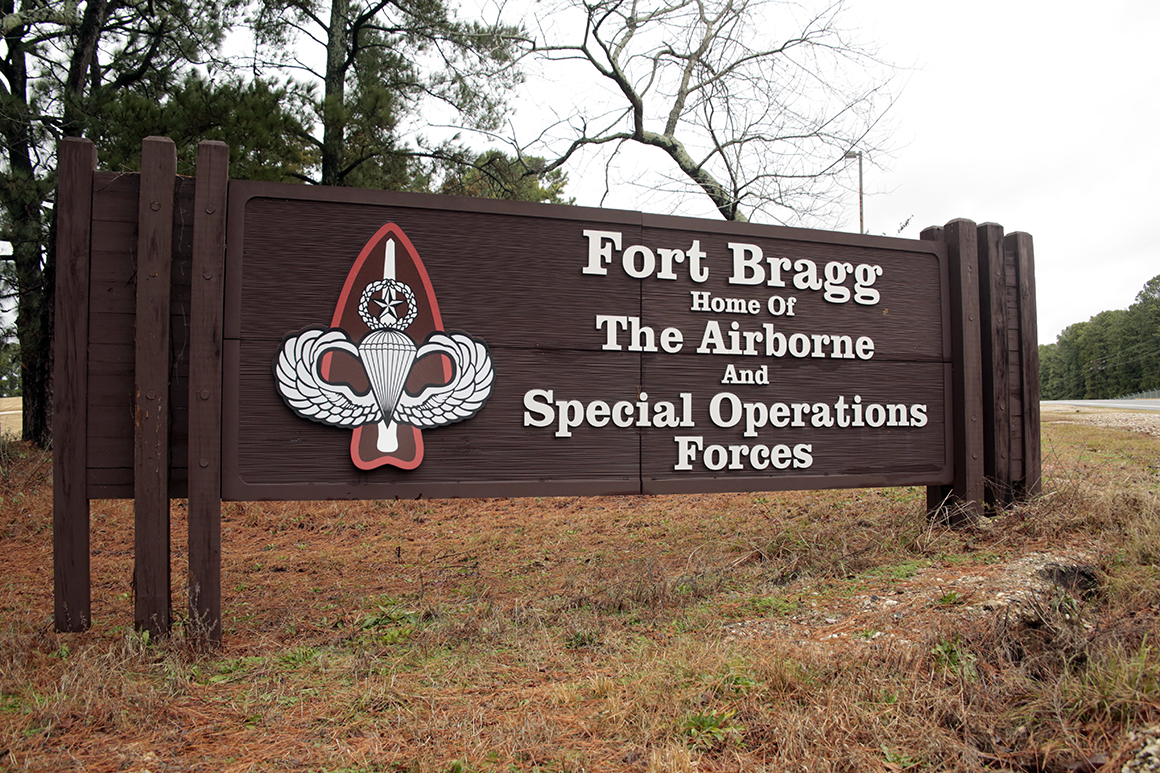
The pair, who serve on the Armed Services Committee, will likely offer the proposal as an amendment to the annual National Defense Authorization Act when it is considered next month.
Brown, a retired Army Reserve colonel, said in a statement that scrubbing the names of Confederate leaders who took up arms against the United States would help ensure „an honest accounting of our history.“
„It matters to the black soldier serving at an installation honoring the name of a leader who fought to preserve slavery and oppression,“ Brown said. „It matters to the culture of inclusivity and unity needed for our military to get the job done.“
„As the most diverse and integrated part of American society, it is only right that our installations bear the names of military heroes who represent the best ideals of our Republic,“ added Bacon, a retired Air Force brigadier general. „We owe this to ourselves, to our military, our veterans, and to every American who will answer the call.“
House Armed Services Chair Adam Smith (D-Wash.) has supported renaming bases. Armed Services spokesperson Monica Matoush did not share any specifics about Smith’s plans for the defense bill, but noted „there is bipartisan interest in the House to rename bases and remove references to the Confederacy across the DOD.“
The Senate Armed Services Committee, meanwhile, approved its version of the NDAA on Wednesday after adopting Sen. Elizabeth Warren‘s (D-Mass.) amendment to force the Pentagon to remove names, monuments and paraphernalia honoring the Confederacy from military bases over the next three years.
Her proposal, approved by a GOP-led committee, appoints a commission to develop a plan to carry out the guidelines and hear from local communities on the issue.
The move by lawmakers to rename installations — which would include prominent bases such as Fort Hood in Texas, Fort Bragg in North Carolina and Fort Benning in Georgia — is the latest effort to remove tributes to the Confederacy.
It comes as the country — and the military — grapple with issues of systemic racism and amid nationwide protests against police brutality following the killing of George Floyd in custody last month in Minneapolis. Several top military leaders have endorsed banning the Confederate flag and even renaming bases in recent days.
But Trump has pledged to stop lawmakers in their tracks.
Trump tweeted on Wednesday that he „will not even consider“ renaming bases. His red line came after Army Secretary Ryan McCarthy said on Monday that he was open to renaming the 10 Army bases the bear the names of Confederates.
The president doubled down on Twitter, slamming Warren and calling on Senate Republicans to back him.
„Seriously failed presidential candidate, Senator Elizabeth ‘Pocahontas’ Warren, just introduced an Amendment on the renaming of many of our legendary Military Bases from which we trained to WIN two World Wars,“ he tweeted. „Hopefully our great Republican Senators won’t fall for this!“
The White House also pledged Trump will veto legislation that seeks to rename bases — threatening to tank the $740 billion defense bill. In an otherwise dysfunctional Congress, the NDAA is one of the few major bills that reliably passes with bipartisan support and becomes law.
Presidential vetoes of the defense bill likewise have been rare over the past six decades. Trump’s two immediate predecessors, Barack Obama and George W. Bush, each vetoed one NDAA in eight years in office.
This year, lawmakers in both parties are counting on the bill’s passage to boost Pentagon fighter purchases, shore up Navy shipbuilding and dedicate billions of dollars toward bolstering U.S. military posture in the Pacific to deter China.
Though it’s not clear yet how much opposition there may be, changing base names isn’t a done deal on Capitol Hill, either.
At least one Republican, Sen. Josh Hawley of Missouri, opposed Warren’s amendment during Wednesday’s closed-door markup of the defense bill.
„I opposed this amendment, spoke against it, and voted no in the committee,“ Hawley tweeted. „Congress should not be mandating renaming of our bases and military installations.“
Senate Armed Services Chair Jim Inhofe (R-Okla.), meanwhile, told reporters he’ll seek to change the provision to effectively allow localities to have more power in halting decisions to rename the federal installations.
„I think they ought to have veto authority,“ Inhofe said on a conference call.
A spokesperson for Rep. Mac Thornberry, Claude Chafin, told POLITICO the ranking House Armed Services Republican is open to „a mechanism that looks at renaming“ bases.
„It is very important to him that the process of deciding new names is ultimately left with the services and communities and out of the hands of politicians,“ said Chafin.
Source: politico.com
See more here: news365.stream






